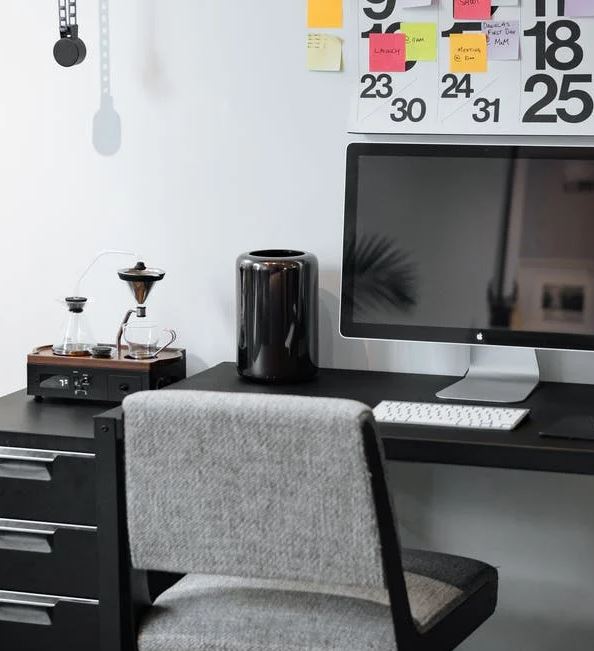As technology improves, more people are setting up home offices to work from wherever they want. And working at home is the best place to do it. Nowadays, husbands and wives often work in the same office. Working together has its pros and cons. An ideal balance must be between one’s business and personal lives to ensure a couple’s marital life is harmonious. For most married couples, the concept of sharing an office with their spouse causes either joyous anticipation or agonizing worry about too much time spent together.
The Benefits and Disadvantages of Sharing Home Office with Spouse
Working with your partner or spouse in one home office space may have several benefits; for instance, you can save resources, time, and money by building a separate office. And you may also have someone to split the maintenance and operating expenses with. You have plenty of time to spend with your spouse. If you work together, you’ll have plenty of time to get to know one another. Because of spending so much time together, you better grasp one another’s perspectives. In this way, you and your partner can become closer as time passes.
They spend a lot of time helping one other out in their formal duties while they work together in the same place. As a result, they can support one another’s professional advancement. It’s impossible for couples who don’t work in the same place to aid each other professionally. Due to this arrangement, both the husband and wife stand to benefit professionally and personally in the long run. Sharing an office will also encourage collaboration between the two of you, and you will feel less lonely because you have someone to talk to every now and then.
Moreover, sharing an office space with your spouse can foster a high degree of understanding. Couples who have worked together for a long time are more compatible than those who haven’t. Consequently, they can handle schedule adjustments better and keep office arguments in the workplace. Couples who own a business together are in the same boat. As a result, they can perform at a high level since they know what they are good at.
While sharing your office space with your spouse can also be rewarding, there are also some drawbacks you should consider before creating a shared office with your spouse.
One issue of sharing an office space with your spouse is the lack of privacy and space for oneself. There is no doubt that compatibility is a critical component of a happy marriage. However, some people like to be alone from time to time. But this is not an option if both spouses work at the same place. Too much time together can lead to a lack of enthusiasm in their life, on the other side. The fact that a couple spends a lot of time together does not necessarily mean they are content with one another’s company. When it comes to marriage, quantity does not always equal quality.
Most of the time, boredom results when a husband and wife both work in the same office space, which is one of the main drawbacks of doing so. Their routine is unchanged because they see each other every day at work. Eventually, boredom creeps in since they spend so much time together and there is little to talk about. Hence, any form of communication will bore them to tears. After a certain point, this could lead to strained relationships in their marriage.
Many prefer to work in a peaceful and serene environment, while others thrive in a noisy environment and find silence deafening. There is always more noise when another person is working at home, no matter how quiet they are. If you’re used to being alone, this may take some time. While some people have a built-in tendency to be overly vocal, others’ jobs include frequent phone conversations or the use of loud equipment.
Sharing a home office with a spouse might lead to problems. You may have trouble agreeing on the home office layout and window seat. If problems arise, both parties must agree on how to run the shared home office. Personality clashes can make working together tough. Because of this, creating clear norms and boundaries is essential to make sharing a home office as enjoyable and easy as possible.
Helpful Tips on Sharing Home Office Space with a Partner or a Spouse
-
- Agreed on some rules on the use of your home office. Don’t let your office-sharing arrangement be dictated by an unsaid “understanding” or common decency. Sit down and lay out precisely what each of you expects of the other.
- Dividing the room is a good idea. Create two unique areas in your home office even though you share a workstation or surface. Conflicts over lost or stolen documents can be avoided in this way.
- Define your work area. Set boundaries for your everyday routines and work initiatives. It is better to refrain from offering counsel unless specifically requested by the other party. Make each person responsible for their task to avoid stepping on each other’s toes. Observing or hearing your partner’s work may prompt you to offer your thoughts on the best method to accomplish it. When you’re at work, it’s critical to let your partner create their work style.
- Critical work systems should be kept apart. Don’t share materials that you and your partner utilize regularly. It’s advantageous to separate your essential work systems to have a backup plan in the event of a disaster.
- To save space, centralize your technologies into a single location. To free up room in your home, consider centralizing your workplace printers, shredders, and other office gadgets like network drives and printers. With this setup, you just have to walk a little distance to get what each need; therefore, you will experience fewer interruptions.
- Reducing the level of background office noise. A noisy work environment might harm productivity. Your partner may be chatting on the phone, listening to music, or behaving disruptively. Headphones with noise cancellation are an option. Although it won’t silence the conversation, the noise will be reduced to a considerable extent. It also uses microphones to take up low-frequency noise and cancel it out before it reaches the ear, which is how the technology works. If your spouse’s discussion is still a source of irritation to you, try turning it down. You can play tunes if you want to drown out the noise. Also, when making phone calls, some people may feel apprehensive. As a result, putting on headphones and listening to music can help you and the other person feel more at ease.
- Workplace Setup. Make a mental note of your preferred workstation. Sometimes, sitting in certain office parts makes individuals happier and more productive. Some people aren’t as concerned about it as others are.
- Create a positive mood. Make your workplace a place where you may feel at ease and happy. Repaint it and add some artwork or images to liven it up.
- Maintain your focus on your work. To keep a healthy work-life balance, you should keep personal concerns out of the office. Private chats can wait until the end of the day.
- Be respectful to your partner or spouse. To sum up, be courteous and respectful to one other. Remind yourself of what you appreciate about your partner, so you don’t become complacent. When lockdowns and quarantines are lifted, it is expected that the trend of working from home will continue for a while because of its multiple advantages. However, there are a few negatives to this setup that you should not overlook. Knowing what works for you and youpartner while sharing office space can make it easier for you and your spouse to enjoy your relationship and get the benefits of working remotely simultaneously.






